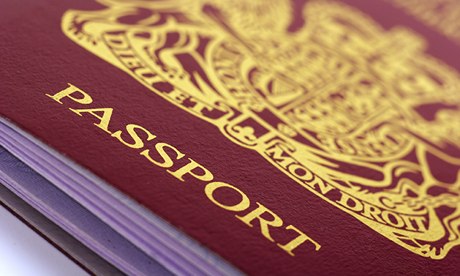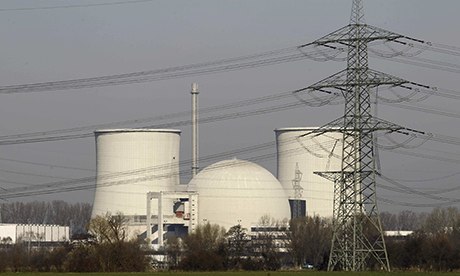By Olivia Chung
HONG KONG - "Get rich - then get out" is the life message being grasped by
China's wealthiest citizens two decades after former leader Deng Xiaoping
supposedly declared that "to get rich is glorious".
About 60% of rich Chinese people intend to migrate from China, according to a
report jointly released by the Hurun Report, which also publishes an annual
China rich list, and the Bank of China. A separate study by US-based Bain &
Company and China Merchants Bank in April of 2,600 high-net worth individuals -
those who hold more than 10 million yuan (US$1.6 million) in individual
investable assets (excluding primary residences and assets of poor liquidity) -
found that about 60% of those interviewed had completed immigration applications to other countries or had plans to do so.
About 14% of the rich Chinese people, each of whom has a net asset of more than
60 million yuan, said they had either already moved overseas or applied to do
so, according to the Hurun findings, which were based on one-on-one interviews
with 980 rich Chinese people in 18 mainland cities from May to September.
Another 46% said they planned to emigrate within three years, variously citing
higher-quality education available for their children overseas, better
healthcare, concerns about the security of their assets on the mainland and
hopes for a better life in retirement.
The most favorable destinations by rich Chinese is the US, with 40% of
respondents claiming it was their first choice, followed by Canada and
Singapore. Encouraging them in their quest, the United States continues to
lower its threshold for businesspersons’ immigration.
Some 70% of the 4,218 visas issued under the US Immigrant Investor Program,
known as EB-5 visas, issued in 2009 were applicants from China, data from the
US Department of State show. In 2010, more than 70,000 Chinese applicants
obtained permanent residency in the US, accounting for 7% of total applicants,
placing second behind only Mexican applicants, according to the US Department
of Homeland Security.
Canada allocated more than 1,000 of its targeted 2,055 immigrant investors to
Chinese people in 2009 and last year, 2,020 Chinese applicants obtained
permanent residency in Canada through investment, accounting for 62.6% of the
total immigrant investors to Canada, data from Citizenship and Immigration
Canada showed.
Kathy Cheng, an investment immigration consultant based in Shenzhen, next to
Hong Kong, attributed the popularity of the US to it not having a cap on its
investment visa program. The minimum amount required for investment immigration
to the US is $500,000, and among all destinations that offer investment
immigration, the US is alone in not imposing a quota.
“Recently, the US is trying to overhaul the immigration laws to attract rich or
high-skilled foreigners. The moves have attracted the attention of some wealthy
Chinese, who can afford to live elsewhere," she said to Asia Times Online by
telephone.
Two US senators, Democratic Chuck Schumer and Republican Mike Lee, last month
introduced a bill that would give residence visas to foreigners who spend at
least US$500,000 to buy houses in the country. The proposal would allow
foreigners immigrating to the United States to bring a spouse and any children
under the age of 18. The provision would create visas that are separate from
current programs so as to not displace anyone waiting for other visas.
The US Ambassador to China, Gary Locke, the former US commerce secretary who
took on his latest post in August, said the US will make its investment and
commercial environment as open and appealing as possible to increase Chinese
investment in the US to create more jobs for Americans, which is the foremost
priority of the Barack Obama administration.
"We will help Chinese companies and entrepreneurs better understand the
benefits and ease of investing in the US by establishing factories, facilities,
operations and offices," Locke told US business leaders in Beijing in
September.
In May, President Obama said the US needs to overhaul its immigration laws to
secure high-tech foreign talent to address a shortages of scientists and
experts in the high-technology sector. In the same month, the Obama
administration extended the Optional Practical Training program to allow
students graduating in fields that include soil microbiology, pharmaceuticals
and medical informatics, to be able to find a job or work in the US for up to
29 months (instead of 12) after graduation.
New York City Mayor Michael Bloomberg said recently at a Council on Foreign
Relations event in Washington, that to spur job growth, the US should allow
foreign graduates from US universities to obtain green cards (permanent
residency), ending caps on visas for highly skilled workers, and setting
green-card limits based on the country's economic needs not an immigrant's
family ties.
Of the 980 people interviewed by Hurun Report and the BOC, about 35% said they
have assets overseas, which on an average accounted for 19% of their total
assets; 32% of those surveyed said they have invested overseas with a view to
emigrate and half said they did so mainly for the sake of their children's
education.
A mainlander who has manganese mines in his home province of Guangxi said he
was applying to emigrate to Canada from his home region in southeast Guangxi,
mainly due to take advantage of better education overseas for his two-year-old
son.
"An increasing number of parents in China prefer their children to receive
education overseas instead of with the examination-oriented education system in
China," said the mine owner, who asked not to be identified.
However, a source close to him said the mine owner had assets worth millions of
dollars and "underground" businesses; given changeable government policies,
emigration was the best way of protecting some of this wealth.
"Despite Beijing's currency rules, the wealthy have many ways to move their
money out of the country. Besides, part of his money comes from smuggling,
though his business is far smaller than Lai Changxing," said the source.
Lai Changxing was extradited to China from Canada in July after a 12-year exile
there. He is expected to face charges for smuggling to a value of US$10
billion, bribery and tax evasion.
Under Beijing's capital rules, anyone leaving China can carry with them a
maximum of 20,000 yuan (US$3,100) or the equivalent of US$5,000 in foreign
currency. However, it is commonly known that wealthy Chinese are free to leave
the country with briefcases full of cash.
Ye Tan, an independent economist and commentator in Beijing, said the growing
gap between the rich and the poor in the mainland, which has aroused discontent
among the less well off, has made some of the wealthy feel uncomfortable.
"The lack of security sense about the safety of their assets among Chinese
wealthy is like a huge black cloud hanging over their heads," Ye was quoted as
saying in the Hurun survey report.
China has 960,000 "yuan millionaires" with personal wealth of 10 million yuan
(US$1.5 million) or more, according to the GroupM Knowledge - Hurun Wealth
Report 2011. The figure is up 9.7% from a year earlier. China has 60,000 "super
rich' with 100 million yuan or more, up 9% on a year earlier.
Average monthly income in China is only about 2,000 yuan, despite double-digit
economic growth for about the past three decades.
China's Gini coefficient, a commonly used measure of wealth inequality, reached
0.47 in China last year, according to the National Development and Reform
Commission, above the international warning level of 0.4, which is considered
to be the level that could trigger social unrest.



